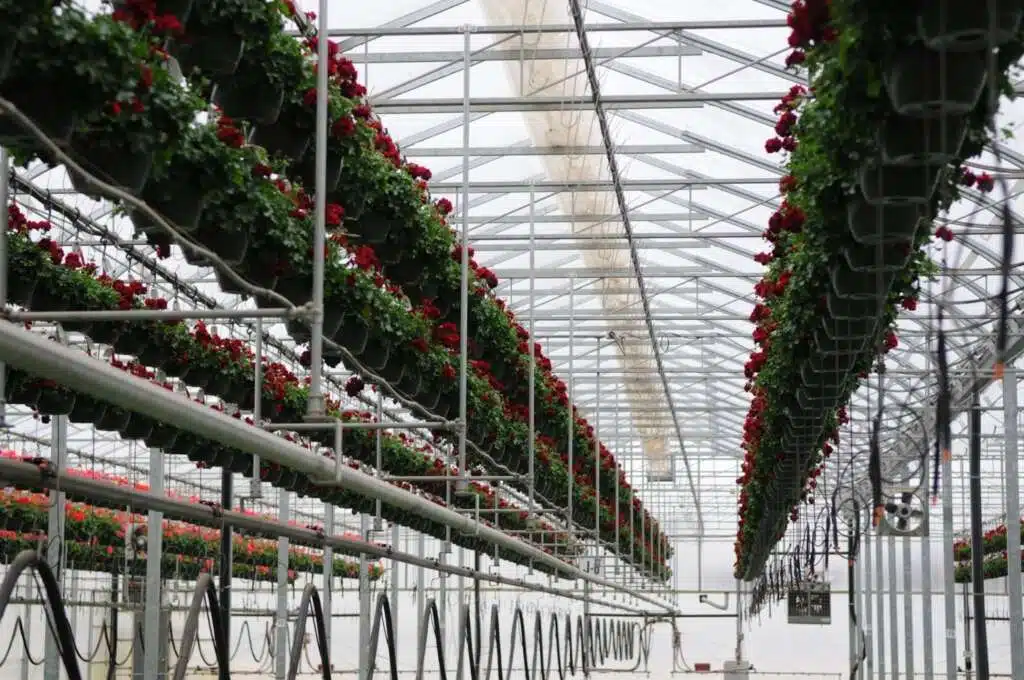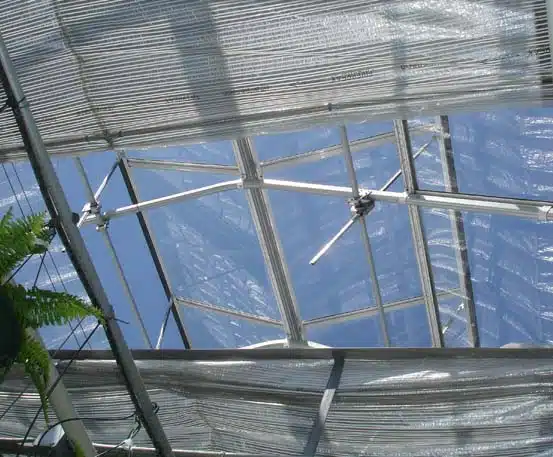When planning a greenhouse project, one of the most common questions we hear is: “How long does greenhouse construction take?”The answer varies depending on the size, type, and complexity of the greenhouse, but with the right team, the process can be streamlined, efficient, and worry-free.
At GGS, we handle every step in-house, from consultation and design to manufacturing, construction, and full project management. That means no juggling multiple contractors, no delays from third-party dependencies, and one seamless timeline from start to finish.
In this article, we’ll walk through thetypical greenhouse construction timeline,step by step, so you can plan effectively and understand exactly what to expect.
Factors That Affect Greenhouse Construction Time
Even with a full-service provider like GGS, several factors influence construction timelines:
1. Type of Greenhouse
- Small hobby greenhouses: Often pre-engineered, can take 1–3 weeks.
- Commercial greenhouses:Large, customized structures with climate control and automation can take 2–8 months, depending on complexity.
2. Foundation and Site Conditions
Leveling and prepping the site is critical for a solid greenhouse foundation. Site prep can take a few days to a few weeks,depending on soil and terrain.
3. Permits and Approvals
Even with full-service project management, local building codes and zoning laws affect timelines. GGS can assist with the permitting process as part of the project, helping prevent delays.
4. Customization and Features
Greenhouses with specialized automation, climate control, or irrigation systemstake longer than standard models.
5. Weather and Seasonality
Outdoor construction is always subject to weather. Scheduling around dry seasons or mild temperatures reduces potential delays.
Step-by-Step Greenhouse Construction Timeline
Here’s a general overview of the greenhouse construction process when you work with a full-service provider like GGS.
Step 1: Consultation and Planning (1–3 Weeks)
Every project starts with a consultation. GGS experts help you determine:
- The purpose of your greenhouse: hobby, research, or commercial cultivation
- The ideal type and size of the structure
- Layouts for benches, irrigation, climate control, and storage
During this stage, our team also identifies any site-specific challenges and develops a tailored planfor your greenhouse.
Why it’s faster with GGS:Our integrated team ensures no back-and-forth between designers and contractors; every detail is coordinated in-house.

Step 2: Design and Engineering (2–6 Weeks)
Once the goals are clear, the designand engineeringphase begins:
- Detailed blueprints and structural plans
- Customized climate and irrigation solutions
- Structural and safety engineering
With GGS, design and engineering are completed internally, which allows for faster revisions and ensures the structure is built exactly to spec.
Step 3: Permitting and Site Preparation (2–6 Weeks)
Even though GGS handles everything in-house, local permits and site prepstill take time:
- Submission of permits for zoning, building codes, and environmental compliance
- Site clearing, leveling, and foundation preparation
Our project management team coordinates all steps so that permitting and construction prep happen simultaneously, cutting down potential delays.
Step 4: Manufacturing (2–8 Weeks)
After designs are finalized and approved, GGS moves into manufacturing the greenhouse components:
- Structural frames: galvanized steel, aluminum, or wood
- Panels or coverings: polycarbonate, glass, or fabric
- Automated systems: irrigation, climate control, and lighting
Because all manufacturing is done in-house, timelines are predictable, and quality is guaranteed.
Step 5: Foundation and Frame Installation (2–4 Weeks)
Once materials arrive on-site, the foundation and frame installationbegins:
- Foundations are poured or prepared for small-scale greenhouses
- Frames are assembled by our expert construction team
- Structural integrity is verified at every stage
Having GGS handle both manufacturing and construction ensures a perfect fit and minimal errors, speeding up assembly.
Step 6: Covering Installation (1–6 Weeks)
Covering installation protects plants and allows optimal sunlight penetration:
- Polycarbonatepanels: durable, fast to install
- Glass: premium option, handled carefully for safety
- Fabricor polyethylene: cost-effective and quick
GGS ensures the covering is installed with precision, maximizing durability and efficiency.
Step 7: Irrigation, Climate Control, and Electrical Systems (4-8 Weeks)
Modern greenhouses need integrated systems for optimal plant growth:
- Drip or misting irrigation
- Climate control: heaters, fans, and automated vents
- Supplemental lightingor full automation systems
Because GGS manages everything in-house, installation is seamless and coordinated with the structural timeline—no waiting for third-party contractors.
Step 8: Final Inspection and Handover (1 Week)
Before plants go in, GGS conducts:
- Safety and structural inspections
- System tests for irrigation, lighting, and climate control
- Staff training for system operation
After final inspection, your greenhouse is ready for planting. GGS provides ongoing support if needed, ensuring long-term success.

Step 9: Planting and Operation
Once construction is complete and systems are tested, you can start cultivating your crops. Our team is available to provide guidance on planting schedules, irrigation, and climate management, making your greenhouse operational right away.
| Greenhouse Types | Estimated Timeline | Notes |
|---|---|---|
| Small hobby greenhouse | 3–6 weeks | Includes consultation, design, manufacturing, and installation |
| Mid-sized commercial greenhouse | 8–16 weeks | Integrated automation, irrigation, and climate control included |
| Large-scale commercial greenhouse | 4–8 months | Fully customized with all systems, in-house project management ensures no delays from outside contractors |
Why Choose GGS for Your Greenhouse Construction?
By choosing GGS, you gain a single point of accountabilityfor your project. Our full-service approach means:
- No outside contractors needed– everything from design to installation is handled internally.
- Faster timelines– seamless coordination eliminates gaps between stages.
- Higher quality– our team oversees every step, ensuring precision and durability.
- Custom solutions– every greenhouse is tailored to your specific needs, whether for hobby or commercial use.
WithGGS, your greenhouse project is fully managed from concept to completion, allowing you to focus on what matters most: growing.
Looking to partner with GGS? Contact us today!
FAQs About Greenhouse Construction Timelines
- How long does it take to build a greenhouse with GGS?
Timelines vary by size and complexity: small greenhouses can be completed in 3–6 weeks, while large commercial operations may take 4-8 months. - Do I need outside contractors for construction?
No. GGS provides full-service in-house construction, including manufacturing, installation, and project management. - Can the timeline be accelerated?
Yes. Early site preparation, prompt permitting, and coordinated project management allow GGS to streamline constructionwithout compromising quality. - Does customization affect construction time?
Custom features like climate control, irrigation, and automation systems can add time, but GGS’s in-house team ensures these are installed efficiently. - When can I start planting?
Once construction and system testing are complete, your greenhouse is ready for cultivation immediately. GGS can provide guidance for first planting. - How does GGS handle permits?
GGS assists the entire permitting process, including zoning, building codes, and inspections, ensuring compliance and avoiding unnecessary delays.

